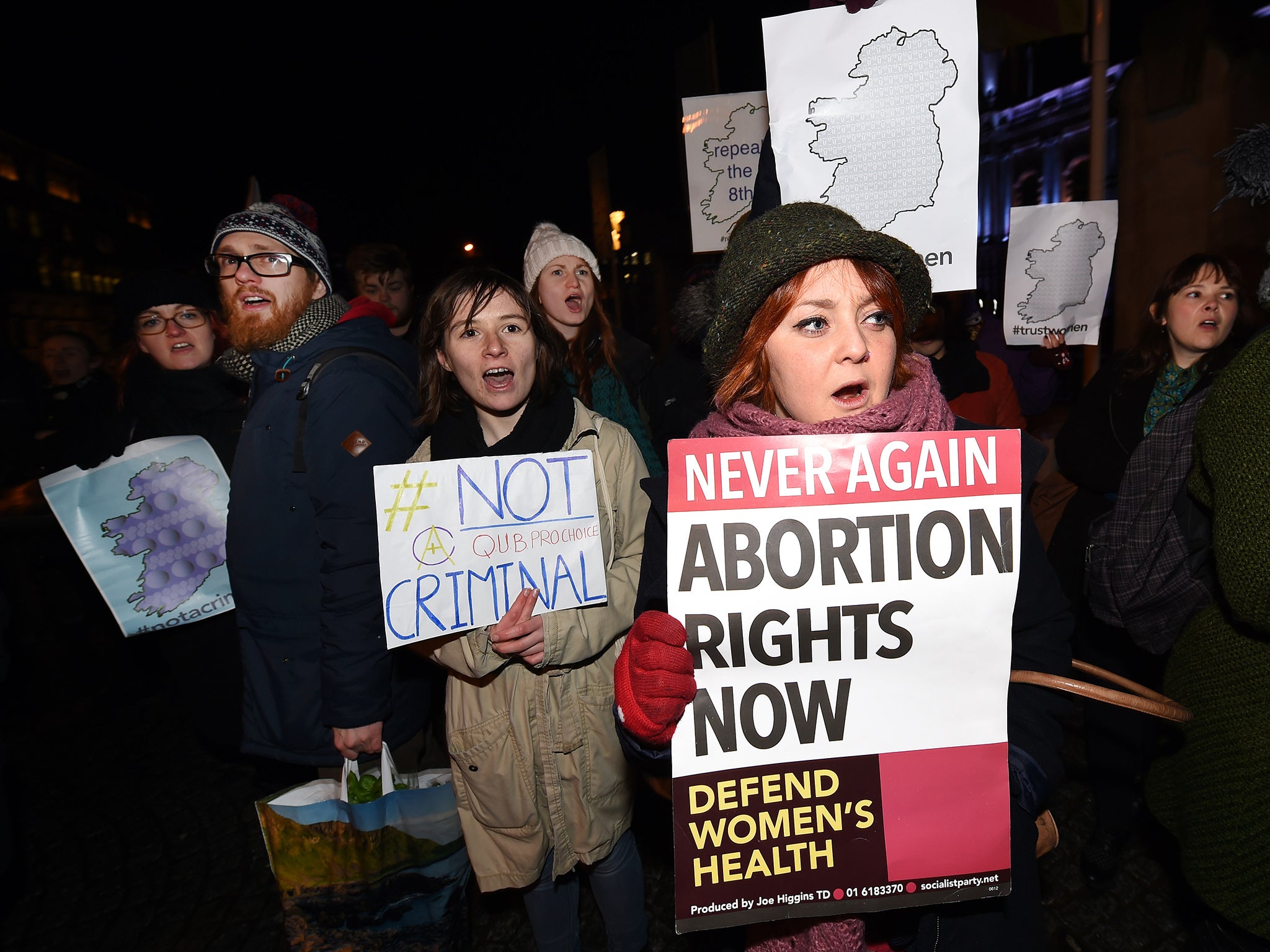Belfast Court to rule whether Northern Ireland abortion laws violate human rights
Northern Ireland's highest court to determine whether ruling that existing abortion laws breach rights of women and girls can be upheld

A Belfast court is to rule whether Northern Ireland's abortion laws breach international human rights legislation.
Northern Ireland's highest court will decide today whether to uphold two high court rulings from 2015 and 2016 that ruled existing abortion laws breached a woman’s right to a private life under European law.
The ruling, which involved women and girls who were unable to undergo abortions in local hospitals in cases of fatal foetal abnormality or who had become pregnant through sexual crimes, is being appealed by the Department of Justice and Northern Ireland's attorney general.
Unlike the rest of the UK, it is unlawful to perform a termination of pregnancy abortion in Northern Ireland unless a woman's life is at risk or there is a permanent or serious risk to her mental or physical health.
The punishment for breaking this law, under section 58 of the Offences against the Person Act 1861, is life imprisonment.
The NI Human Rights Commission (NIHRC), which brought the original case, is cross-appealing and has re-introduced all of the original grounds it brought before the High Court.
Whatever the outcome of Thursday's ruling, all parties will have the right to appeal to the Supreme Court in London.
It comes amid renewed political focus on abortion law in the light of the Democratic Unionist Party’s (DUP) deal with Theresa May.
The party is vehemently opposed to reforming Northern Ireland’s abortion laws, and has joined forces with others in the Stormont parliament to vote against legislation aimed at allowing terminations in cases of fatal foetal abnormality and women and girls made pregnant through rape or incest.
Earlier this month, the UK's highest court narrowly rejected an appeal by a mother and daughter for women from Northern Ireland to receive free abortions on the NHS in England.
The 15-year old teenager, known only as "A", travelled to England to terminate a pregnancy five years ago – a procedure her mother, known as "B" had to arrange and pay for privately, like many other girls and women like her.
Afterwards, A and her mother challenged the NHS’s refusal to fund abortions for women from Northern Ireland, and have launched a crowdfunding campaign to take their legal action to Europe.
The crowdfunding campaign is targeting £20,000 to cover the initial costs of bringing a case before the European Court of Human Rights.
A and B stated: “We have received a growing amount of support and feel so passionately about the issue that we have decided to make one final stand for a right that most women in England consider absolute.
“Legal Aid isn’t available to cover the costs of applying to the European Court of Human Rights. We need support from the public and from the many charities who campaign for the rights of women, to make this case a reality.”
A survey by the Northern Ireland Life and Times revealed earlier this month that an overwhelming majority of Northern Irish people favour reform of the country’s abortion laws.
The results showed that 73 per cent of respondents believe abortion should be legal if the foetus has a serious or fatal abnormality, while more than three quarters (78 per cent) thought abortion should be legal when a woman has become pregnant as a result of rape or incest.
Amnesty International issued a warning following the General Election that the negotiations to establish the next UK Government must not trade away long overdue abortion law reform in Northern Ireland.
The DUP has previously blocked attempts to reform the region’s abortion laws, which date back to 1861 and have been found to breach women’s rights. In recent years, the DUP has also sought to reinforce the criminalisation of women who seek abortions in Northern Ireland through proposed amendments to a Justice Bill.
Join our commenting forum
Join thought-provoking conversations, follow other Independent readers and see their replies
Comments